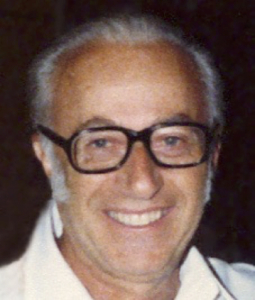
Henry Shaw, Editor, Senza Sordino, from 1972–1982.
Henry Shaw was arguably the greatest editor of Senza Sordino. He held the post longer than anyone before or since. He put out six issues a year for ten years—sixty issues (plus one supplement), on deadline, in a pre-PC age when text editing, layout, production, and publication were much more difficult and time-consuming than they are today—while simultaneously serving as assistant principal second violin of the Cincinnati Symphony Orchestra and as a member of his orchestra’s committee.
And it was all quality work—stylish, literate, engaging reportage and advocacy. Henry wrote editorials protesting age discrimination, casting a wary eye at orchestra splitting, advocating government support for the arts, and more. His “Winds of Change” about the future of orchestras (Vol. 13, Nos. 3 and 4), his exploration of “Our Decibel Dilemma” (Vol. 16, No. 4), his summary of the accomplishments of “ICSOM: An Investment to Protect” (Vol. 15, No. 4), and his essay on “Job Satisfaction” (Vol. 18, No. 6) are masterly and still timely. He also wrote every entry for which he modestly provided no attribution, including lengthy summaries of ICSOM and AFM conferences and meetings. Believing that each issue had to have a lighter side, he authored many humorous pieces as well. (I especially enjoyed his observation that playing second violin parts to Strauss waltzes proves that rigor mortis can set in before death.) And, of course, he received from contributors numerous articles that he skillfully edited and reworked to make suitable for publication—no easy task.
May he rest in peace, and may we never forget his legacy.
—Tom Hall, Chicago Symphony (retired)
In 1960 I joined the Cincinnati Symphony Orchestra, and one of the first people to extend a friendly welcome was Henry Shaw. The symphony season was 28 weeks, with several weeks of summer opera for only part of the group. Orchestral playing was by no means a viable full-time profession and much work lay ahead to make it so, in Cincinnati and elsewhere. Henry was clearly at the forefront in this endeavor, both locally and at the national level. His fine intelligence, broad knowledge, ability to communicate, and especially his willingness to put in untold hours of work made him an invaluable leader.
Eight years later I had the great good fortune to become Henry’s stand partner. We were to spend the next sixteen years together, until his retirement. I cannot imagine a better or more generous collaborator, and I learned immensely from him. His work on the Players’ Committee, ICSOM, and Senza Sordino made constant demands on his time and energy, but he was also a superb and conscientious musician, and the music itself was always his first concern. When I think of Henry, what I remember most is experiencing so many performance highlights with a colleague of such integrity. In recent years, after we were both retired, we often spoke of how fortunate we were to share such a life.
When I visited Cincinnati in March I called Henry, hoping that he and Bobbi would be attending a CSO retirees’ lunch while I was in town. He said he probably wouldn’t be able to make it, but he sounded cheerful and we had a nice chat. Several days later he was gone. He was a dear friend, and he will be greatly missed.
—Rosemary Waller, Cincinnati Symphony (retired)
The core values of ICSOM are, in my opinion, communication and the sharing of information amongst constituent orchestras. Thus, the talent and hard work of the editor of Senza Sordino is crucial to the mission of the organization. Much of the success of ICSOM over the years is due to a series of extraordinary musicians who have served in that capacity. They include Henry, Sam Denov, Robert Levine, Tom Hall, Marsha Schweitzer, Sam Bergman, and the current editor, Richard Levine.
Henry Shaw was one of the best of that group. His perceptive articles about the symphonic field were both informative and elegantly presented. As a member of the Governing Board, Henry consistently brought clarity and foresight to the policy-making and all other discussions of the Board.
But there was much more to Henry than even those attributes. First and foremost, Henry was a gentleman. He was a real trade unionist and a wonderful musician. He was never cynical, snide, or sarcastic in his Senza Sordino articles or in his interaction with colleagues, managements, friends and family. Some of my fondest recollections of ICSOM Conferences involved having dinner with Henry and his lovely wife. I will miss his insights, humor and his dedication to the industry. We owe a great debt to Henry Shaw, and those of us who knew him will never forget the lessons he taught about the music business and about life.
—Leonard Leibowitz, Distinguished ICSOM Legal Counsel





